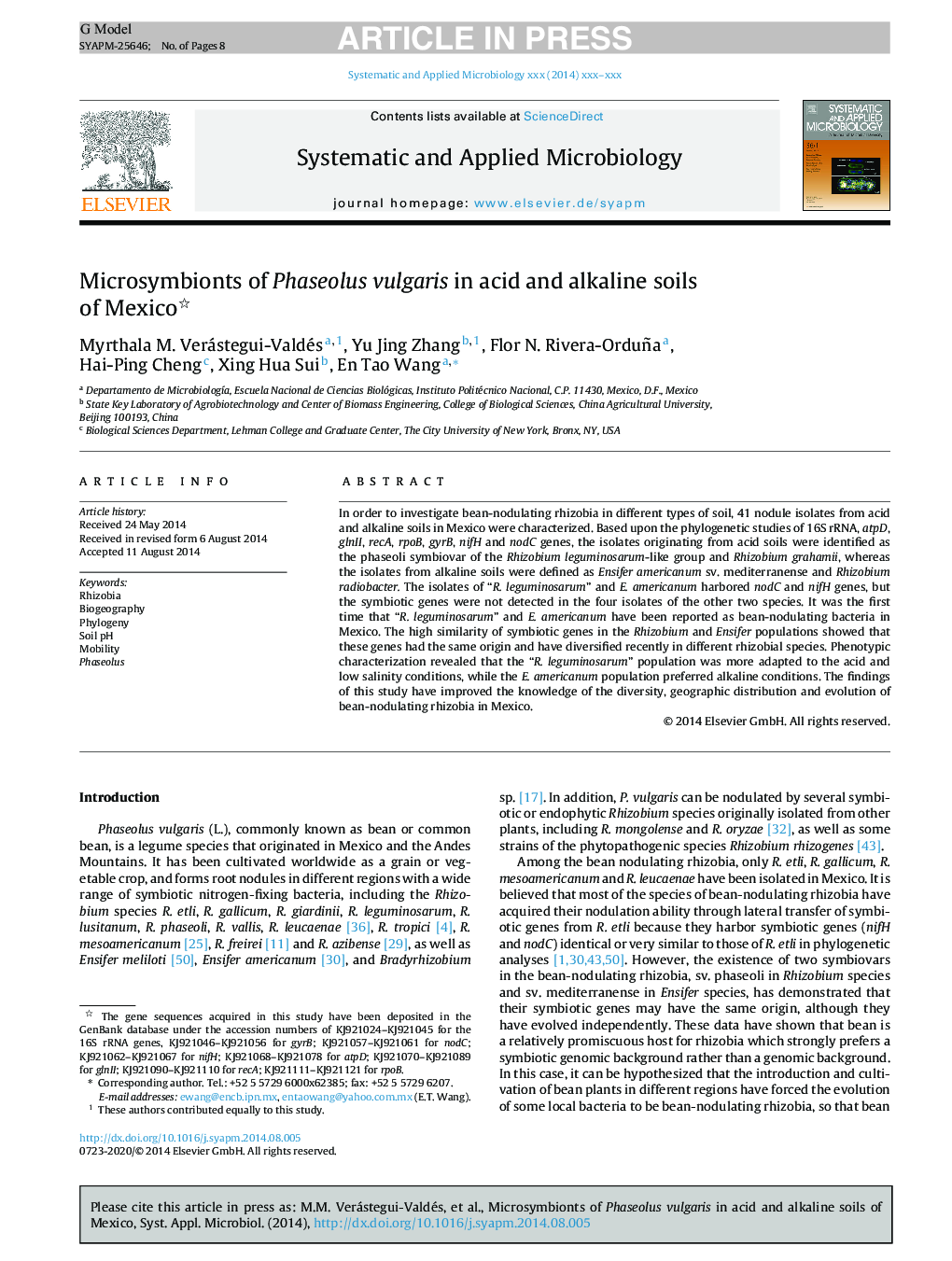| کد مقاله | کد نشریه | سال انتشار | مقاله انگلیسی | نسخه تمام متن |
|---|---|---|---|---|
| 10879391 | 1076643 | 2014 | 8 صفحه PDF | دانلود رایگان |
عنوان انگلیسی مقاله ISI
Microsymbionts of Phaseolus vulgaris in acid and alkaline soils of Mexico
دانلود مقاله + سفارش ترجمه
دانلود مقاله ISI انگلیسی
رایگان برای ایرانیان
کلمات کلیدی
موضوعات مرتبط
علوم زیستی و بیوفناوری
علوم کشاورزی و بیولوژیک
بوم شناسی، تکامل، رفتار و سامانه شناسی
پیش نمایش صفحه اول مقاله

چکیده انگلیسی
In order to investigate bean-nodulating rhizobia in different types of soil, 41 nodule isolates from acid and alkaline soils in Mexico were characterized. Based upon the phylogenetic studies of 16S rRNA, atpD, glnII, recA, rpoB, gyrB, nifH and nodC genes, the isolates originating from acid soils were identified as the phaseoli symbiovar of the Rhizobium leguminosarum-like group and Rhizobium grahamii, whereas the isolates from alkaline soils were defined as Ensifer americanum sv. mediterranense and Rhizobium radiobacter. The isolates of “R. leguminosarum” and E. americanum harbored nodC and nifH genes, but the symbiotic genes were not detected in the four isolates of the other two species. It was the first time that “R. leguminosarum” and E. americanum have been reported as bean-nodulating bacteria in Mexico. The high similarity of symbiotic genes in the Rhizobium and Ensifer populations showed that these genes had the same origin and have diversified recently in different rhizobial species. Phenotypic characterization revealed that the “R. leguminosarum” population was more adapted to the acid and low salinity conditions, while the E. americanum population preferred alkaline conditions. The findings of this study have improved the knowledge of the diversity, geographic distribution and evolution of bean-nodulating rhizobia in Mexico.
ناشر
Database: Elsevier - ScienceDirect (ساینس دایرکت)
Journal: Systematic and Applied Microbiology - Volume 37, Issue 8, December 2014, Pages 605-612
Journal: Systematic and Applied Microbiology - Volume 37, Issue 8, December 2014, Pages 605-612
نویسندگان
Myrthala M. Verástegui-Valdés, Yu Jing Zhang, Flor N. Rivera-Orduña, Hai-Ping Cheng, Xing Hua Sui, En Tao Wang,